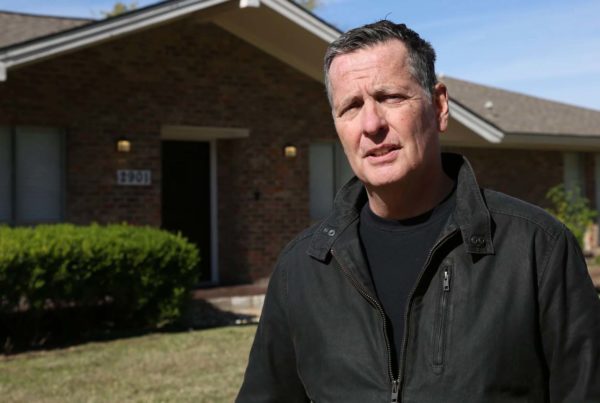The U.S. Supreme Court heard arguments Tuesday in United States v. Texas, a case that digs into some big questions about immigration policy and the relationship between the federal government and the states.
Texas and Louisiana are challenging the Biden administration’s ability to prioritize certain groups for deportation, a policy the administration followed after declaring the resources were not available to target the roughly 11 million undocumented immigrants in the country.
The states argue that the executive branch doesn’t have the authority to pick and choose which groups to prioritize. But supporters of the measure say that a ruling in the states’ favor would have some big implications beyond immigration policy.
Teresa Messer is the director and professor of practice of the Immigration Clinic at the University of Houston Law Center. She joined the Texas Standard to talk about the case and arguments on both sides. Listen to the story above or read the transcript below.
This transcript has been edited lightly for clarity:
Texas Standard: In your own words, there are three questions here before the Supreme Court – the first has to do with something called “standing.” What’s that about?
Teresa Messer: Standing is where you have to show that you have a right to bring your lawsuit and you have to show that it’s a real, direct, particularized harm.
That’s the burden that states have to carry. They have to show that they are being adversely affected by this policy. You have a second, more broadside attack at this policy saying that, what, it didn’t follow the rules under the Administrative Procedures Act? What’s that?
Yes, so the Administrative Procedures Act establishes procedures that the federal administrative agencies use for rulemaking, and it’s defined as a process of formulating, amending or repealing a rule.
And so what the states are saying, if I understand it correctly, is that the Biden administration didn’t follow all the rules in putting out this policy of deciding which immigrants to deport and which not.
Yes, correct.
Okay, and then there’s a third question, and that has to do with the power of the courts themselves, right?
That’s right, so the third one mainly deals with whether the lower courts can issue a vacate affecting the rest of the states.
Or whether the Supreme Court is the only court in the land that can do something like that, that basically orders a stop to the policy nationwide. What arguments are the states making in support of their position? Are they based on constitutional law broadly or more on what statutes say?
The states contend that Congress adopted federal immigration laws requiring the arrest and detention of non-citizens. Basically, they’re saying that there’s a mandatory duty to apprehend non-citizens, and so they’re also arguing that Congress provided that the federal government shall take into custody any non-citizen who has committed certain crimes when the non-citizen is released from criminal custody, and that when there is a final deportation order, the federal government shall remove the non-citizen within 90 days.
The operative word there being “shall,” I suppose?
Yes, and they’re arguing that the use of “shall” means that these provisions are mandatory, and so that’s basically what their argument is for the reasoning.
Could you explain something? What are the implications for states’ ability to challenge federal policies they disagree with, if the court were to rule in favor of Texas and Louisiana – the plaintiffs here?
I believe it could be problematic in that this particular issue, there has been precedential case law and policies that have shown that they have been using priority enforcements in the past, and there was no issue with it previously, so in bringing such this issue, I think that can open the doors to more litigation if they allow for states to sue under these grounds.
So we can expect the arguments from the Biden administration to be: If Texas and Louisiana win in this case, then we’re going to be faced with an avalanche of suits from all sorts of different fronts, not just immigration.
Right. Correct.
So what do you predict when it comes to the likely outcome? I know that requires a crystal ball of sorts, but I mean, failure on any of these questions – could it mean that one side or the other loses the entire case?
No, not necessarily. So the Supreme Court right now has more Republican judges than there are Democratic judges, and so that can play a role into where they stand. However, I’m leaning more towards the federal government being that previously they were given authority to prioritize enforcement, and based on, you know, case law and previous policies – previous memos that were similarly issued – that generally speaking and historically, the executive branch has been given the authority to not only enforce, but determine whether or not to enforce and where to prioritize the enforcement.
Does it surprise you that the Supreme Court on its own decided to take up this case? I mean, as I understand it, there was a challenge to a lower court ruling just asking the court to stay that lower court judgment, but then the high court decided to take up the case.
Yeah, that part was a little surprising, but I think big picture-wise, this is a really important issue that needs to be determined and shown that it should be applicable to all of the rest of the nation, and so I think that it was actually a good decision on the part of the Supreme Court.













